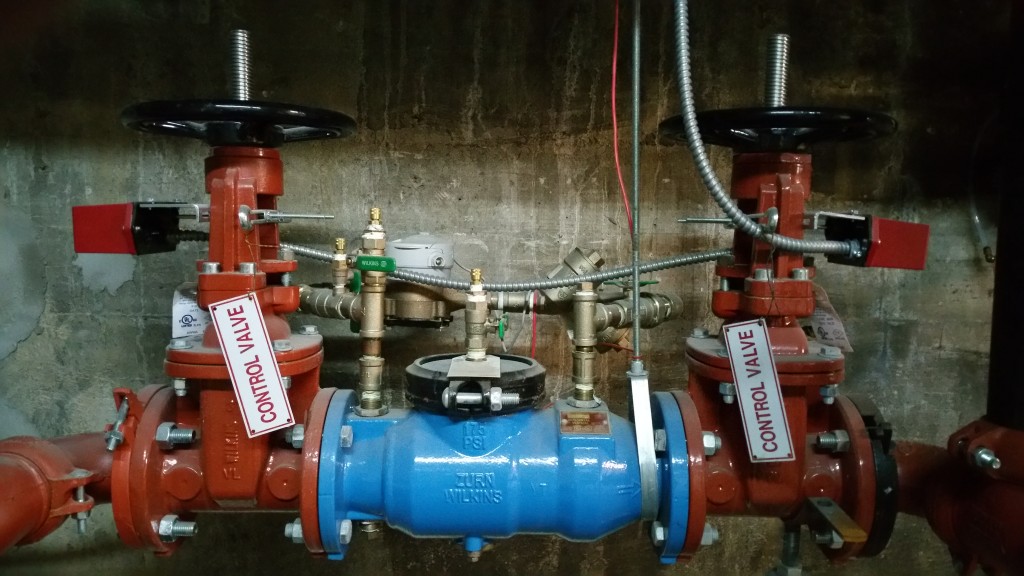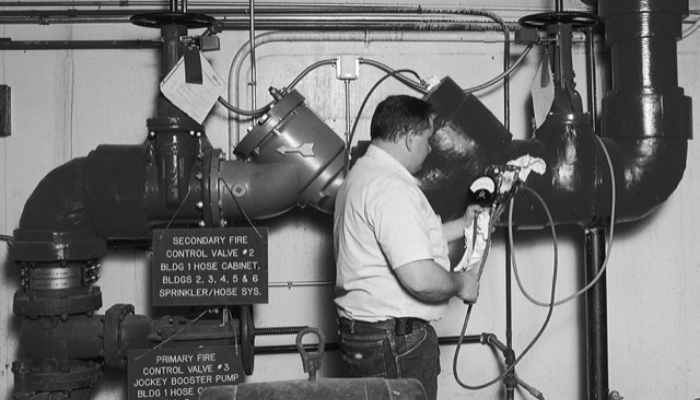Were you looking for tips around Backflow Testing?

Yes, you require to backflow test your house's water supply to guarantee that the water is free of toxic substances and hazardous levels of chemicals. You should not try to do backflow testing on your very own since of the devices required and also space for error. We suggest that you call an expert plumber every number of years to evaluate your water.
Heartburn Can Impact Both You as well as Your City
Numerous cities establish backflow guidelines due to the fact that unsafe heartburn can affect the public supply of water along with a single building. Modern-day cities have backflow tools in area that shield the water supply that comes from many houses as well as commercial homes. The real danger comes from watering systems, which can damage the supply of water with poisonous plant foods, manure, as well as other chemicals.
What Causes Backflow?
A common reason for backflow is a loss of water stress that causes the water to siphon back right into the water supply. An example is cleaning a paint container making use of a hose. You fill up the paint bucket up with water, leaving the hose pipe in the pail. After time, there is a loss in water stress as well as the hose pipe starts to suck the water back into the water supply. As you can think of, there are currently chemicals from the paint that are entering the water, possibly posturing a threat. Lots of individuals are not also mindful of heartburn screening, yet there are many factors why it's so essential.
Backflow Screening is Required by Law in Specific Cities
Depending on where you live, you could in fact be required by legislation to backflow test your regulation. Iowa City keeps a document of all properties offered by the city's water supply.
You Can Stop Heartburn
The main purpose of a backflow gadget is to stop water from flowing in reverse right into your water supply. Plumbing professionals mount the gadget on the pipes in your house to guarantee that the water only flows in the correct instructions.
What is Heartburn?
In short, heartburn is when water moves upwards-- the opposite direction in the plumbing system. This is also called "backpressure." When the water relocates this instructions, it can blend with unsafe toxins as well as position a risk.
Call a Plumber to Test for Backflow Prior To It is Far too late
While it may appear grim, polluted water can bring about terrible bacterial and also viral infections that are challenging to deal with. A plumbing company can swiftly test your residence's water to determine if there are any type of dangerous chemical levels. If you can avoid the torment that comes from consuming alcohol polluted water, the small investment is. As well as if you do uncover that your water has high degrees of toxins, a plumber can easily set up a backflow avoidance tool.
Yes, you need to backflow test your house's water supply to ensure that the water is free of toxic substances and harmful degrees of chemicals. Many cities establish heartburn guidelines since harmful heartburn can impact the public water supply in addition to a solitary structure. A common reason of heartburn is a loss of water pressure that triggers the water to siphon back into the water supply. After some time, there is a loss in water pressure and the hose pipe begins to draw the water back into the water supply. The primary function of a heartburn device is to avoid water from streaming backward right into your water supply.
Backflow Testing: What Is It, and Why Is It Necessary?
What Is Backflow?
Backflow is exactly what you might imagine this somewhat gross-sounding word to mean. It is contaminated water that has reversed flow, and as a result, enters into the clean water lines of homes and businesses. Backflow is typically caused by a significant change in water pressure. This can be due to a water main break, frozen pipes or an unexpectedly high demand on the water system. It can occur at any cross-connection between clean and dirty water in residential, commercial or industrial water lines. And the worst part – backflow can contain hazardous materials like human waste, pesticides or chemicals. Needless to say, it poses very, very serious health concerns, not to mention the potential for a heap-load of expensive stress!
Backflow Prevention and Testing
In order to safeguard against backflow in standing structures, a backflow prevention device should be installed by a trusted team of professionals. Once installed, if there should ever be an unexpected or dramatic change in water pressure, the device will prevent backflow from entering into the clean water supply system. But, again, it’s important that this device is properly installed by a professional so that they can test it and ensure that the clean water line remains contaminant free. This really is key.
While personal standards and responsibilities should maintain certain routine testing requirements, there are already municipal codes in place that require annual testing of these backflow prevention devices. This ensures that they are functioning properly and that no hazardous contaminants are spilling out into the clean water supply. If, however, testing of any device is not completed on time, you should know that a property or business’ water supply might be interrupted, and the property owner might even face fines. So, to avoid this from happening to you, we recommend scheduling a backflow test well in advance.
Fortunately, here at Tritan, we can help schedule and carry out backflow testing for your property. We provide a variety of backflow-related services, including prevention device installation and testing. Call us today and make sure that this stressful problem doesn’t happen to you and your property or business.
https://www.tritan-plumbing.com/blog/2018/february/backflow-testing-what-is-it-and-why-is-it-necess/

I am just very fascinated by Commercial Backflow Testing and I hope you enjoyed reading our page. Those who enjoyed our page please remember to pass it around. Thanks a bunch for your time. Kindly come visit our website back soon.
We're the solution!
Comments on “Should I Get a Backflow Test for My Water”